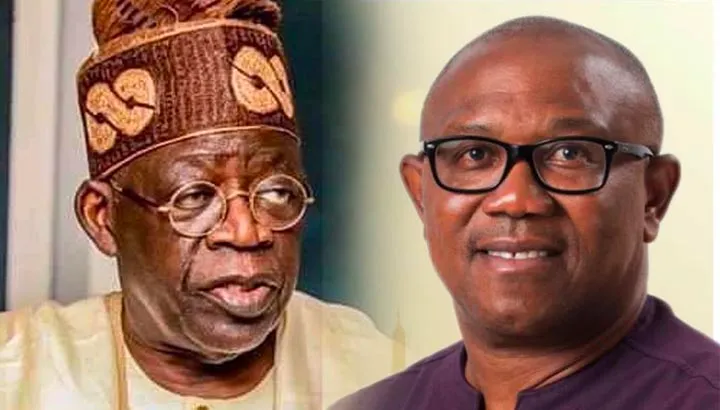Peter Obi and the Labour Party (LP) filed a petition against the All Progressives Congress (APC) and the Independent National Electoral Commission (INEC) challenging the election of the APC presidential candidate, Bola Tinubu.
Referring to Bola Tinubu as the second respondent in the petition, one of the grounds on which the petition was based upon was the non-qualification of the APC candidate. The first ground of the petition states that “the 2nd respondent was, at the time of the election, not qualified to contest the election.”
Based on the first ground in the petition, Tinubu needed to be qualified to run for the position of the president of Nigeria before he contested.
Peter Obi and the LP based their claim on a case against the seccond respondent centred on dishonesty – narcotics trafficking imposed on him by the United States District Court, Northern District of Illinois, Eastern Division in Case No. 93C 4483.
The second respondent was then fined $460,000, which was forfeited to the US government. The amount was taken from his Citibank International account.
What the constitution says
Section 137 of the 1999 Constitution stipulates the conditions on which a candidate is to be disqualified from contesting for the position of president. In Sub-section 1d, the constitution states that a person be disqualified if…
“he is under a sentence of death imposed by any competent court of law or tribunal in Nigeria or a sentence of imprisonment or fine for any offense involving dishonesty or fraud (by whatever name called) or for any other offense imposed on him by any court or tribunal or substituted by a competent authority for any other sentence imposed on him by such court or tribunal.”
An Abuja-based legal practitioner, Peter Ochu, pointed out that the constitutional requirement for disqualification was clearly stated. He said there was no hidden clause to what the constitution provided, claiming that it was plain to a layman as the weight behind each word carried the exact meaning.
“The case between Obi vs Tinubu will most likely be dependent on the boldness of the court,” Barr Ochu concluded.
Another legal practitioner, Basil Hemba, said that what was before the court against Tinubu was an allegation and must be proven for it to hold water. He said he had also seen another publication of the US denying any sentencing of Tinubu, which contradicted the initial claim.
“Obi has to prove that his allegations against the disqualification of Tinubu is valid before the court, presenting legal documents to back it up. This is how his claim can be valid, else, it is just an allegation without substantial evidence,” he said.
Barr Hemba, however, said that if Tinubu was sentenced by a court in the US, for which a fine was also counted as a sentence, such would be valid in Nigeria as it was from a competent court.


